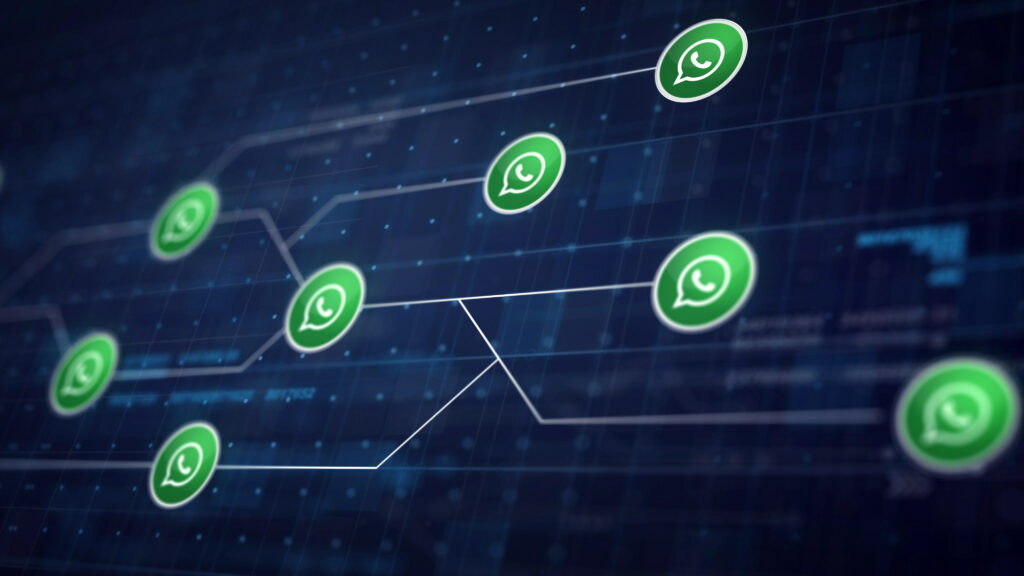In today’s digital-first world, businesses need to reach customers where they are most active. Traditional channels like email and SMS still play their part, but the demand for faster, more personal, and real-time communication has shifted the spotlight toward WhatsApp marketing. With over 2.7 billion active users worldwide, WhatsApp has evolved into one of the most powerful platforms for businesses to engage with their audience.
This blog will guide you through what WhatsApp marketing is, why it matters, and how businesses can use it to achieve growth.
What is WhatsApp Marketing?
WhatsApp marketing is the use of WhatsApp to promote products, share updates, provide customer service, and build strong customer relationships. Unlike social media platforms where communication often feels one-sided, WhatsApp offers a direct, two-way interaction between businesses and customers.
WhatsApp supports rich media such as images, videos, catalogs, and voice notes, making it an ideal platform for creative and interactive marketing campaigns.
Why Businesses Should Care About WhatsApp Marketing
-
Massive Global Reach
WhatsApp is available in over 180 countries, making it one of the most widely used communication platforms globally. Whether you are a local startup or a multinational company, you can connect with customers around the world. -
Unmatched Engagement Rates
WhatsApp messages have an open rate of nearly 98%, compared to the 20–25% average of email marketing. This ensures your message is almost always seen. -
Real-Time Conversations
Customers expect instant responses today. WhatsApp enables real-time interactions that foster trust and build long-term relationships. -
Cost-Effective Marketing
WhatsApp campaigns require minimal investment compared to traditional advertising channels like TV, print, or even paid digital ads. -
Personalization
Businesses can send highly personalized messages, offers, and reminders, making customers feel valued rather than just another lead.
Key Benefits of WhatsApp Marketing
-
Boosts Customer Loyalty: Consistent engagement builds stronger connections.
-
Drives Higher Sales: Personalized recommendations and limited-time offers can encourage quick purchases.
-
Improves Customer Support: Instant messaging reduces response time and enhances the customer experience.
-
Enhances Brand Trust: Direct communication on a platform customers already use daily builds credibility.
-
Supports Multimedia Campaigns: From product demos to catalogs, WhatsApp makes marketing engaging and interactive.
WhatsApp Marketing Strategies for Businesses
To make the most of WhatsApp marketing, businesses should focus on strategic execution. Below are some effective approaches:
1. Build a Permission-Based Contact List
WhatsApp has strict anti-spam policies. Always grow your contact list organically by asking customers to opt-in. This not only complies with policies but also ensures higher engagement.
2. Leverage WhatsApp Business Features
With the WhatsApp Business App, companies can create business profiles, use quick replies, label conversations, and share product catalogs. For larger businesses, the WhatsApp Business API allows automation, chatbots, and integration with CRM tools.
3. Personalize Your Messages
Instead of sending generic bulk messages, personalize your campaigns. Address customers by their name, reference past purchases, and tailor offers to their preferences.
4. Share Valuable Content
Don’t just sell—provide value. Share tips, updates, product tutorials, or exclusive information that helps customers. This creates trust and positions your brand as an authority.
5. Use Rich Media for Engagement
Images, videos, voice notes, and PDFs make your messages more engaging. For example, a clothing store can share style lookbooks, while a restaurant can send menu updates with mouthwatering images.
6. Automate Where Possible
Automation ensures efficiency. Use chatbots for FAQs, order confirmations, and reminders. This reduces manual effort while ensuring customers get timely responses.
7. Track and Optimize Campaigns
Measure performance using metrics like delivery rates, open rates, click-through rates, and conversions. Use these insights to improve future campaigns.
Common Use Cases of WhatsApp Marketing
-
Promotional Campaigns: Announce discounts, sales, or product launches.
-
Customer Service: Resolve queries quickly and provide after-sales support.
-
Order Updates: Send shipping notifications, payment confirmations, and reminders.
-
Event Invitations: Share webinar or workshop links with personalized invites.
-
Feedback Collection: Conduct surveys or gather customer opinions directly through chat.
Best Practices for WhatsApp Marketing
-
Respect Privacy: Never spam customers with irrelevant messages.
-
Stay Professional Yet Friendly: WhatsApp is personal, so maintain a conversational tone.
-
Time Your Messages Well: Avoid sending messages late at night or during working hours unless it’s business-relevant.
-
Provide an Opt-Out Option: Give customers the freedom to unsubscribe from your updates.
-
Be Consistent: Regular but non-intrusive communication keeps your brand top of mind.
The Future of WhatsApp Marketing
As more businesses adopt WhatsApp for customer engagement, the platform continues to evolve with features like click-to-WhatsApp ads, catalog integration, and in-app payments. These innovations will make WhatsApp an even more essential tool for business growth in the coming years.
Final Thoughts
WhatsApp marketing is not just a trend—it’s the future of direct communication between businesses and customers. Its massive reach, high engagement rates, and real-time interaction capabilities make it one of the most effective tools for building lasting customer relationships.

